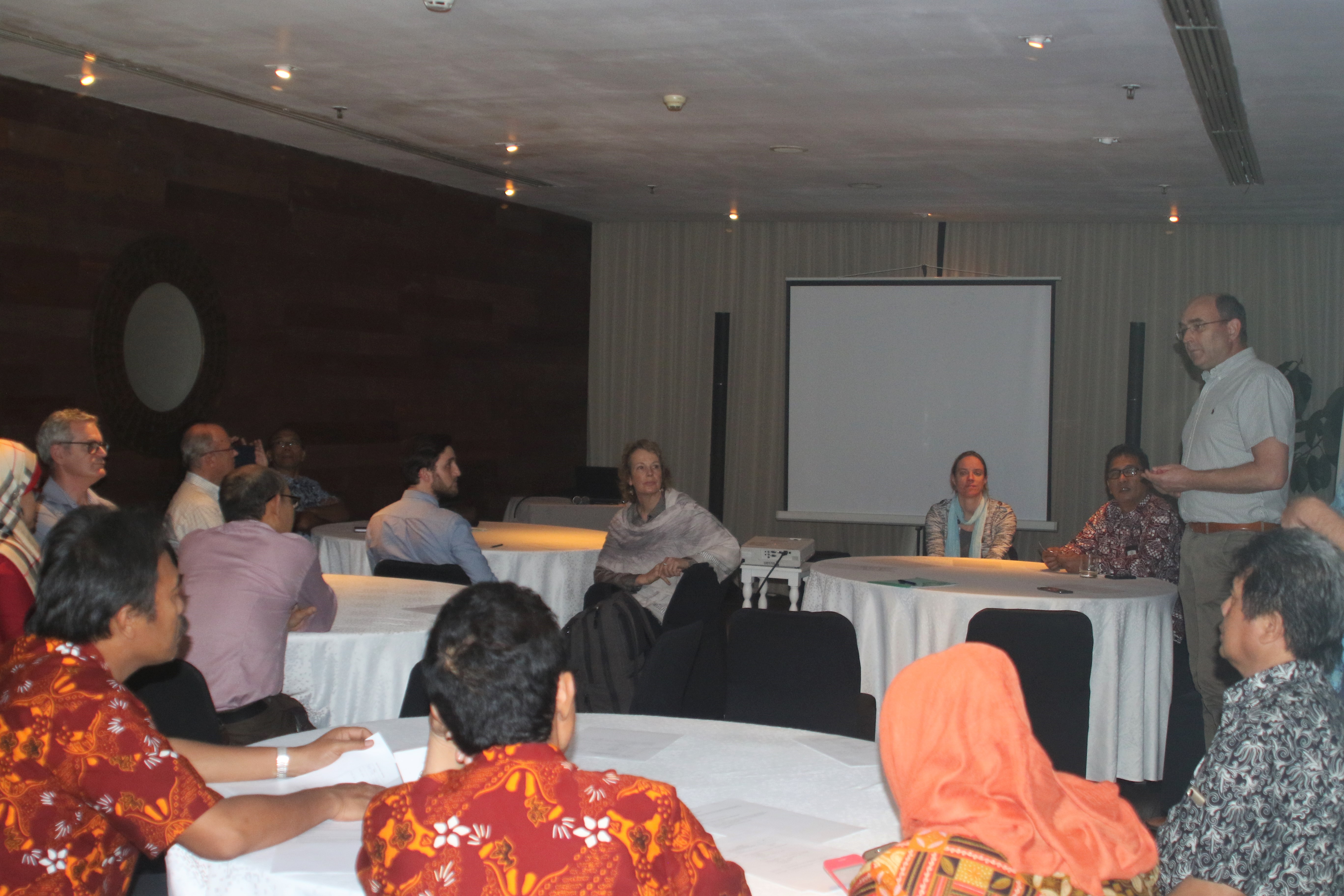To help further the strategy for mainstreaming Building with Nature in Indonesia, the Building with Nature Indonesia Consortium organised a high-level expert meeting in Jakarta with government officials from national and subnational levels and university partners. This strategic session resulted in decisions for establishing a Building with Nature Platform in Indonesia, and concluded that there is shared concern on the problems of land subsidence which rapidly increases coastal vulnerability in Indonesia.

One of the priority actions to scale up Building with Nature in Indonesia is the establishment of a Building with Nature Platform consisting of “Building with Nature experts and champions”, most of whom have been involved since the very early stage of the Building with nature programme in Indonesia.
The Platform will serve as a hub through which members disseminate the Building with Nature approach across Indonesia, for example by providing practical design guidelines and trainings to the water sector, through the media, and by seeking support at national, provincial, and district government levels, including as a means to contribute to climate change adaptation and disaster risk reduction.
It was concluded that the platform will create working groups to stimulate wider update of Building with Nature, guided by the representatives from the BwN Consortium. Further, a help desk facility will provide on-the-job guidance on all aspects of the project life cycle of existing and future Building with Nature projects.
The meeting also concluded in a vision, governance and membership model, identification of target audiences and mode of operation. The aim is that the Platform will become an independent platform which will engage members from government, private sector, knowledge institutes and civil society and initiate new pilots in different settings, providing advice on nature-based solutions.
A shared concern by all participants is the issue of land subsidence (gradual caving in or sinking of an area of land) which is occurring at an alarming rate in Demak. Upon recent observations, the land subsidence problems seem to be much more severe and more widely stretched along the coastline than previously thought.
Ultimately, mangrove restoration efforts and aquaculture revitalisation may no longer be feasible with such high levels of subsidence. Participants believe that there is a shared responsibility by all stakeholders to address the subsidence problems and that informed decisions can only be made by mapping all water demands by users, water availability and water safety, and through dialogue, not only in Demak but also linked to Semarang city.
Three main solutions were identified:
1) to stop unsustainable water use such as uncontrolled groundwater extraction, which is causing land subsidence in Demak as well as in coastal areas throughout Southeast Asia, 2) to regulate water supply, and 3) to improve water distribution. The Building with Nature Consortium in Indonesia therefore calls for an integrated water management plan for Demak and for Semarang and aims for the development of a roadmap to address land subsidence in Demak.
